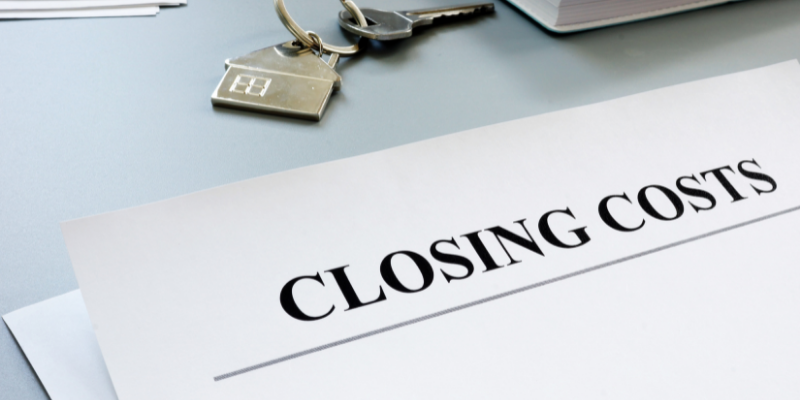When Do You Need A Real Estate Lawyer?
Whether it’s your first-time buying property or your third, real estate is an expensive purchase. There are many things to take into consideration and understand. The legalities around selling or purchasing a house are often misconstrued by novice or first-time home buyers. Unfortunately, when it comes to real estate, silence is NOT golden. You WILL want a lawyer on your side to protect your rights and interests and ensure that every detail is covered in the contract.
Despite this, many home buyers are unsure WHEN a real estate lawyer would be beneficial to their transactions. In this complicated Canadian real estate market, you’ll need a knowledgeable guide. Here are some situations when having a real estate lawyer is your ace in the hole.
When you’re buying a house.
Perhaps the most common mistake people have is to think that real estate agents and real estate lawyers can do the same things. The truth is, they can both offer beneficial yet completely different services when it comes to property transactions.
Real estate agents are guaranteed to make simple the complex process of buying a home. They will handle the paperwork, purchase contracts, and other necessary paperwork, and handle the inspection and negotiations of the home you’re interested in buying.
The right real estate agent can also assist you in finding the right buyer. They will help you organize and run open houses if you are selling your home.
Real estate agents also assist with moving, making sure you get to your new home as quickly as possible. However, their local roles may differ from one province to another.
Real estate lawyers, on the other hand, document and review your real estate documents and transactions while agents process your documents. Even though real estate agents are familiar with legal documents, they do not necessarily have the expertise to explain the legal implications of each clause.
A real estate lawyer can also assist with title issues, purchase contracts, and insurance issues. When an exchange turns sour, he or she can also represent you in court to protect your interests.
When your sale is complicated.
There are two main areas where complications can arise: the property itself and the sale itself. Let’s look at these individually.
The property itself may have complications that make it difficult to sell, such as problems with zoning or repairs. The buyer’s agent could negotiate some repairs or perhaps resolve a zoning issue into the Agreement of Purchase or Sale, but it is likely the lawyer who not only helped the agent with the clauses for the agreement but will also ensure they are enforced before close.
The other area where complications can arise during the sale is regarding financing for either buyer or seller. The mortgage company may refuse to lend money, for example, resulting in a significant issue that needs resolution before closing. Alternatively, there could be terms that have to be met in order to be funded.
When you have concerns about the title.
The title is the record of ownership. It tells you who owns the property and what restrictions if any, are on that ownership.
If there are any problems with it, you can hire a lawyer to help resolve them. For example, if someone else owns part of your property, or if the property is encumbered by debt or mortgage, then you might need to hire a real estate lawyer to help get things straightened out.
When you are refinancing or taking out a second mortgage.
When you are refinancing or taking out a second mortgage, you should always hire a real estate lawyer.
This is because when you refinance or take out a second mortgage, you may be facing legal issues that will affect your mortgage. For example, if you have had a foreclosure in the past and wish to take out another mortgage, this could affect your ability to do so. Or your first position lender may have as an agreed term that no secondary financing is permitted.
A real estate lawyer can help you navigate any legal issues that may come up during refinancing or taking out a second mortgage.
When someone claims they have an interest in your property.
An interest in your property is any right to use, possess, or control any part of it. This can include claims of ownership or possession, but it also includes valid leases on the land.
If someone has an interest in your property, they may be entitled to compensation for the use of the land and for any improvements made to it. They may also be able to seek possession of the land if they have been using it for a long time and you have no right to do so.
If you find yourself in this situation, it is extremely crucial that you act as soon as possible. This will ensure that there are no issues with establishing legal rights over who owns what parts of the property.
When you start a business with others and need to determine ownership of the property used for that business.
A real estate lawyer can help you create the rights and obligations of each owner, such as what percentage of the property is in each owners control. If you are starting a small business, this can be especially critical. This determines how much each person has invested in the company and how much they stand to gain if the company is successful.
It is also helpful for businesses that have multiple investors or partners because it helps avoid disputes over who owns what percentage of the business.
For example, if you are starting a restaurant with two partners and the building was purchased by one of the partners, you may need to hire a lawyer to determine who has legal title to the building. The same could be true if you are opening a store in an existing building that has been owned by someone else before your partnership. It is crucial to determine what type of agreement exists between the partners. This agreement will be enforced if one partner fails to perform their duties under the agreement or becomes unable to pay their share of expenses for operating the business.
Conclusion:
These are just some of the scenarios when a real estate lawyer is beneficial for you. But we hope it gives you a clearer picture of why a real estate lawyer is the most important person you hire during the buying process. They can help you understand your rights and responsibilities as a buyer. In addition, they can guide you through the process to make sure that all your needs are met. Make your real estate journey hassle-free. Connect with trusted real estate lawyers today.
Sources:
- https://www.freshrealty.ca/blog/canada-adverse-possession-laws-what-you-must-know-and-how-to-protect-your-property/
- https://www.lexology.com/library/detail.aspx?g=70b552b3-488e-4859-b08b-79adcf1134fc
- https://www.hg.org/legal-articles/professional-liability-for-real-estate-agents-in-ontario-canada-37750
- https://www.investopedia.com/ask/answers/101314/what-do-real-estate-attorneys-do.asp
- https://integrislaw.ca/what-does-an-ontario-real-estate-lawyer-do/
- https://www.lawtimesnews.com/practice-areas/real-estate/what-does-a-real-estate-lawyer-do/326577
- https://www.canadianlawyermag.com/practice-areas/real-estate/why-home-buyers-need-a-real-estate-lawyer/356414
- https://titlers.ca/what-does-an-ontario-real-estate-lawyer-do/
Integris Law has five locations based in Burlington, Oakville, Mississauga and Etobicoke and we are happy to come to you. We provide legal services across the Greater Golden Horseshoe and regularly see clients in Mississauga, Toronto, Oakville, Burlington, Woodbridge, Milton, Brampton, Dundas, Hamilton, and Stoney Creek.












